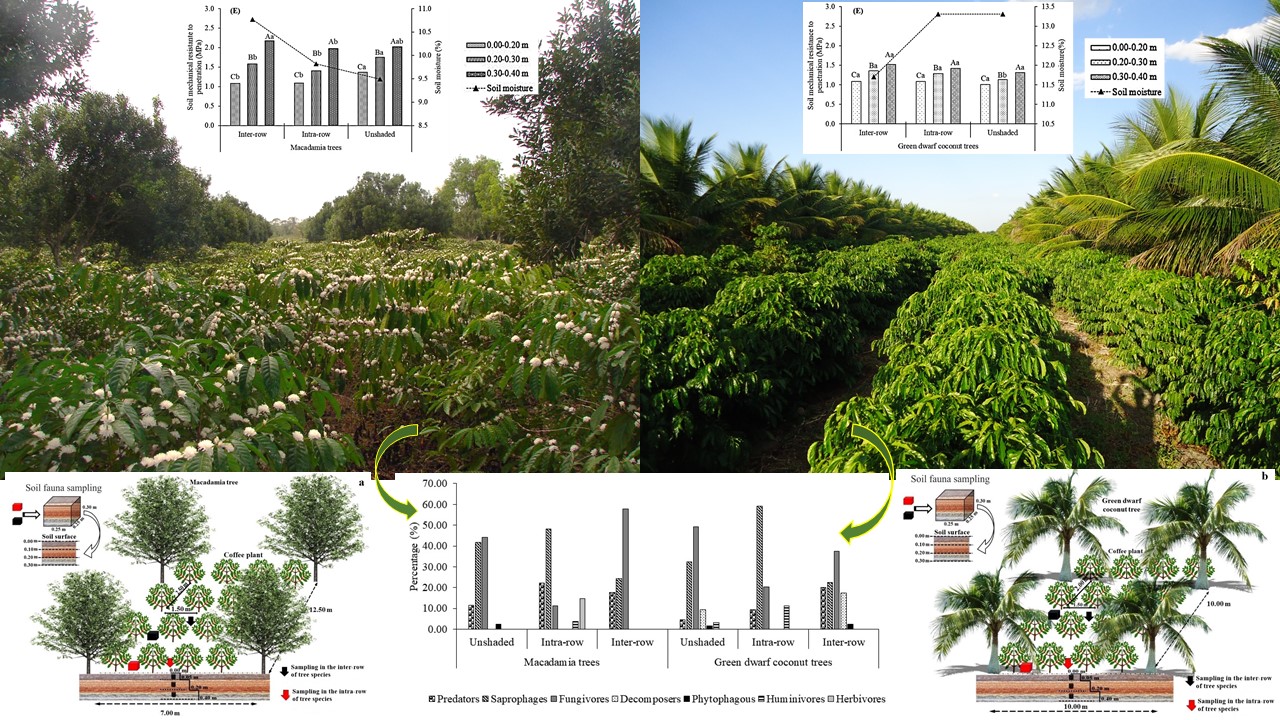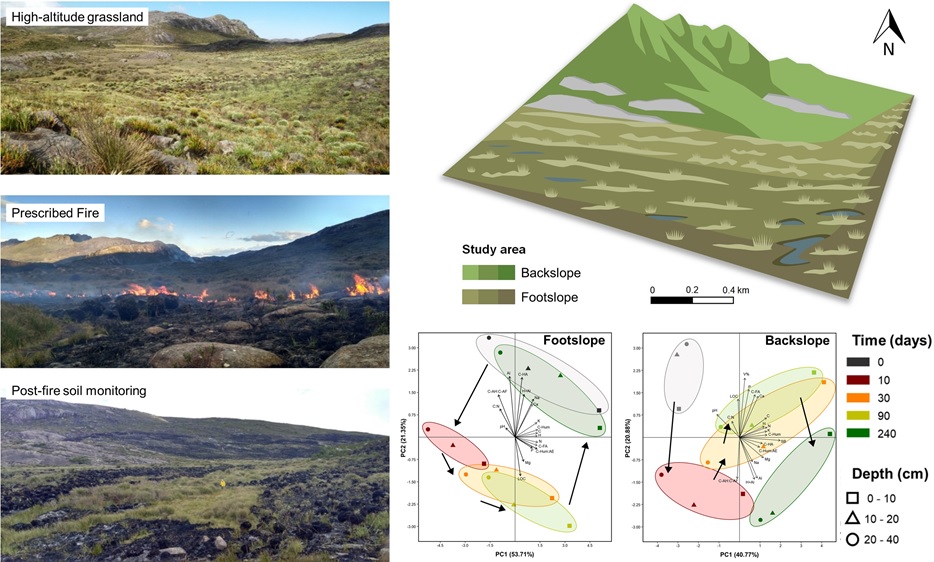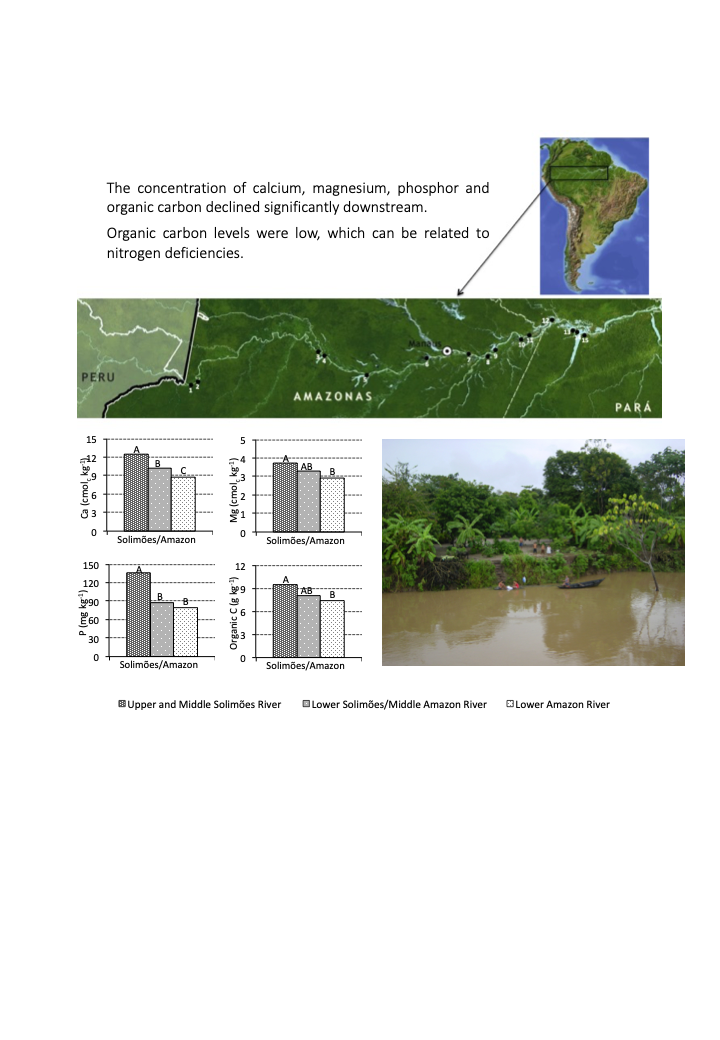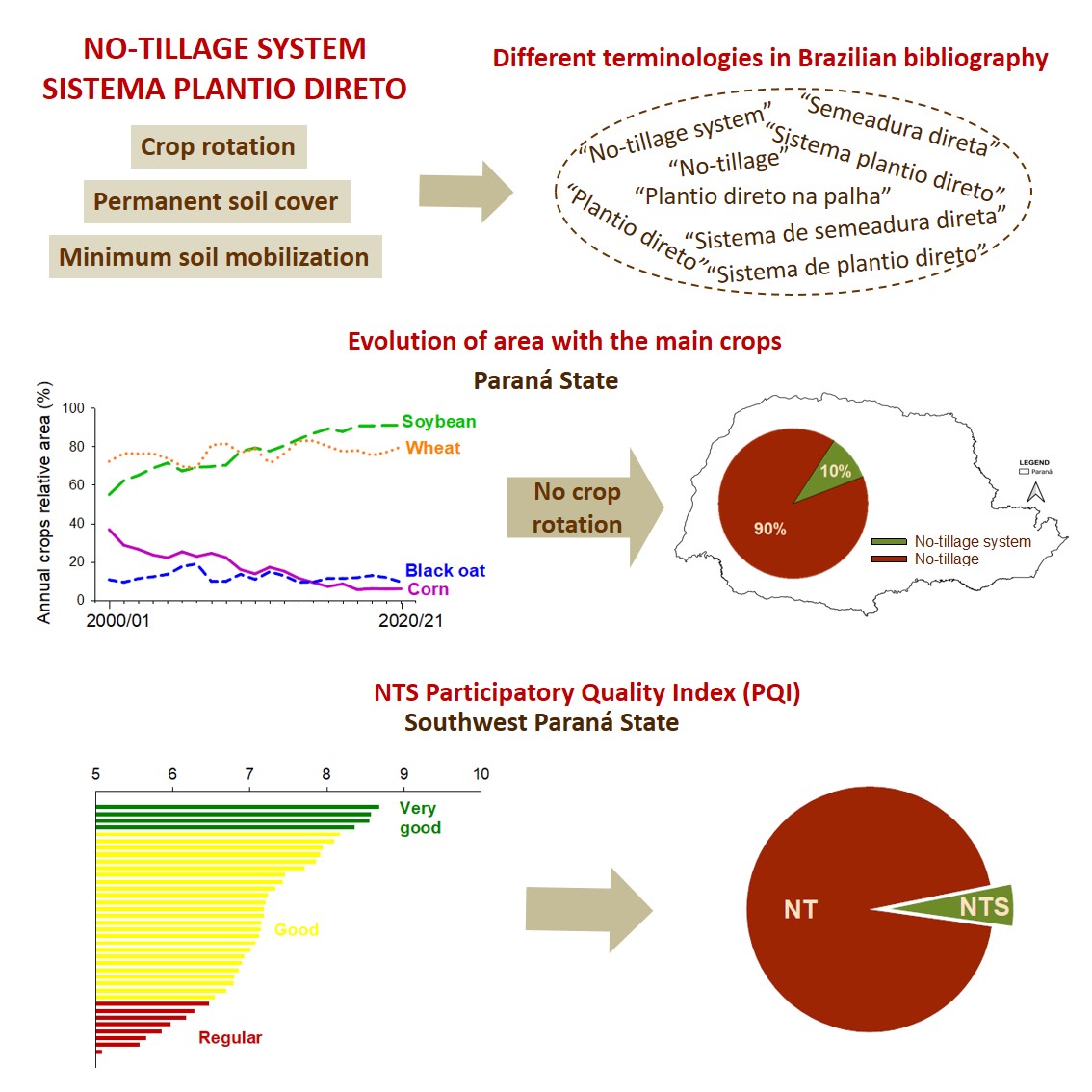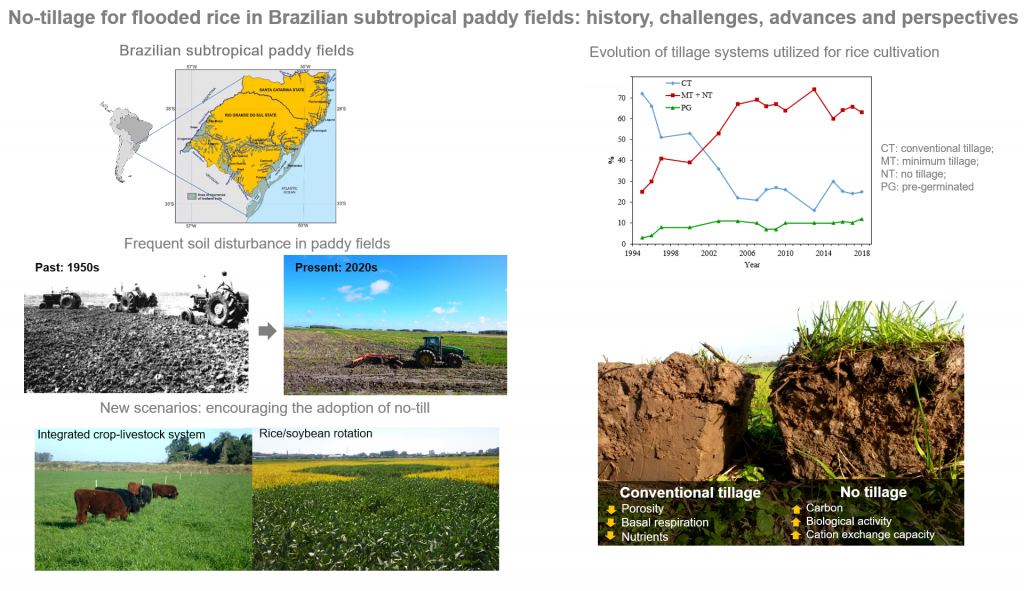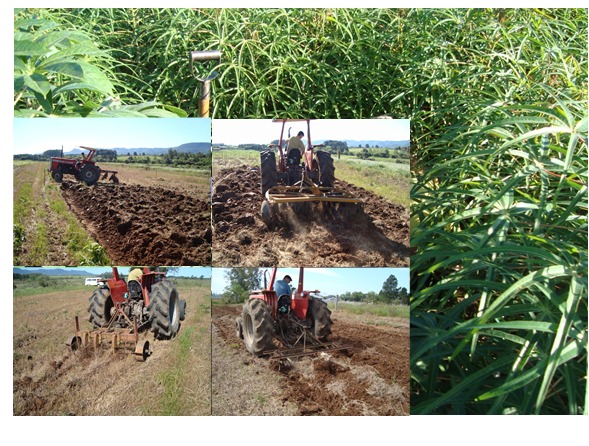Soil physical, chemical and biological properties in Conilon coffee intercropping systems
25/Mar/2024
ABSTRACT Shaded coffee systems may offer a series of benefits, however, studies on shaded cultivation of Conilon coffee crops are still scarce in the literature. This study aimed to evaluate the soil physical, chemical, and biological properties of two Conilon coffee intercropping systems from southeastern Brazil. Two commercial coffee crops – one shaded by macadamia trees and the other by green dwarf coconut trees – were evaluated according to three treatments: coffee plants in the inter-row of the tree species; […]
Carbon and nitrogen stocks in a Rhodic Nitisol under different tillage methods and mineral and organic fertilizers
07/Dec/2023
ABSTRACT Changes in soil management, for example by more vigorous crops, adoption of conservation tillage and optimization of fertilization, can increase soil organic carbon (SOC) and total nitrogen (TN) stocks. We hypothesized that corn – black oat rotation under no-tillage (NT) and adequate soil fertilization can increase these stocks, compared to conventional tillage (CT). This study compared these two tillage methods and organic with mineral fertilizers, regarding their effects on C and N cycling and SOC and TN stocks in […]
Slope position controls prescribed fire effects on soil: a case study in the high-elevation grassland of Itatiaia National Park
28/Nov/2023
ABSTRACT There is a need for greater knowledge about the medium- and long-term effects of prescribed fire management on soil in ecosystems prone to wildfires and more vulnerable to climate change. This study examined the short- and medium-term effects of prescribed fire on soil chemical properties and chemical fractions of soil organic matter (SOM) in two positions of the landscape in a high-elevation grassland environment. The ecosystem is located in the mountain peaks of southeastern Brazil associated with the Atlantic […]
Earthworms in the state of Paraná, Brazil: State of the art
06/Jun/2023
ABSTRACT Paraná State has approximately 74 % of its territory destined for agricultural activities. Several agricultural management practices modify soil quality and biodiversity, including earthworm populations that can contribute to soil health. This study aimed to review the studies carried out in the state of Paraná, Brazil, focusing on earthworm populations (abundance, biomass, richness, proportion of native and exotic species) in different land-use systems. In total, 51 publications were compiled, including peer-reviewed papers, book chapters, dissertations and theses. We used […]
Chemical features of floodplain soils under different land-uses in the Solimões/Amazon River basin
22/Jun/2022
ABSTRACT Most studies regarding the impacts of agricultural systems on soils of the Amazon region of Brazil have been carried out on upland soil, locally known as terra firme. Information regarding the impacts of different land-use systems on floodplain soil properties is still scarce. There is a need to broaden this knowledge to understand this Amazonian ecosystem better, especially how its soils respond to human interventions. This study aimed to describe the major chemical features of floodplain soils along the […]
Adoption of the no-tillage system in Paraná State: A (re)view
13/Jan/2022
ABSTRACT The concept of a no-tillage system (NTS), or “Sistema Plantio Direto,” was established in Brazil from the evolution of no-tillage (NT) or “Plantio Direto,” given the edaphoclimatic conditions and the need to promote chemical, physical and biological improvements in cultivated soils. While “Plantio Direto” is a conservationist practice, “Sistema Plantio Direto” presents itself as an agricultural production system based on the simultaneous adoption of minimum soil disturbance, maintenance of permanent soil cover and crop rotation. This study reviews the […]
No-tillage for flooded rice in Brazilian subtropical paddy fields: history, challenges, advances and perspectives
24/Nov/2021
ABSTRACT: No-tillage (NT) has been one of the main advances related to soil management in Brazilian agriculture in the last 30 years. However, its full adoption in lowland areas that are traditionally cultivated with flooded rice is still incipient (<5 %). The main reasons are associated with the soil hydromorphic condition and the management of highly recalcitrant residual crop biomass, demanding soil disturbance even occasionally. This review presents a historical survey about the soil management systems utilized in lowland areas […]
Is cassava yield affected by inverting tillage, chiseling or additional compaction of no-till sandy-loam soil?
02/Jun/2021
ABSTRACT Defining a suitable soil tillage option that provides adequate soil physical conditions for optimum cassava (Manihot esculenta Crantz) productivity has not been adequately researched in southern Brazil. This study aimed to evaluate, in an Argissolo Vermelho-Amarelo Distrófico (Acrisol or Hapludalf), three tillage methods – conventional (inverting) tillage, chiseling, and long-term no-tillage (without and with, additional soil compaction), as affecting soil hydro-physical properties and cassava yield, in southern Brazil. Undisturbed and disturbed soil samples were collected from row and interrow […]
Clay Mineralogy of Subtropical Soils under Long-Term Organic Fertilization in No-Tillage Systems
03/May/2018
ABSTRACT: Organic fertilization effect on physical-chemical properties in no-tillage systems in tropical soils has been widely investigated, but little is known about the effects of this practice on the mineralogy of the clay fraction. This study aimed to evaluate the clay-fraction mineralogy of two subtropical soils, fertilized with organic residues in long-term no-tillage systems. An Alfisol fertilized with 0, 40, and 80 m3 ha-1 yr-1 pig slurry was evaluated for eight years, and an Oxisol with 0, 8, and 16 […]
Biological Soil Properties in Integrated Crop-Livestock-Forest Systems
12/Jun/2017
ABSTRACT Currently, agricultural productivity and sustainable development are the desired bases for the creation of production systems. Farming for greater production and the efficient use of soil resources are at the core of modern systems. However, the way in which agricultural management and practices can change soil quality has become increasingly important. The aim of this study was to detect changes in soil biological properties caused by implementation of the integrated crop-livestock-forest system (iCLF) and to identify the properties suitable […]

